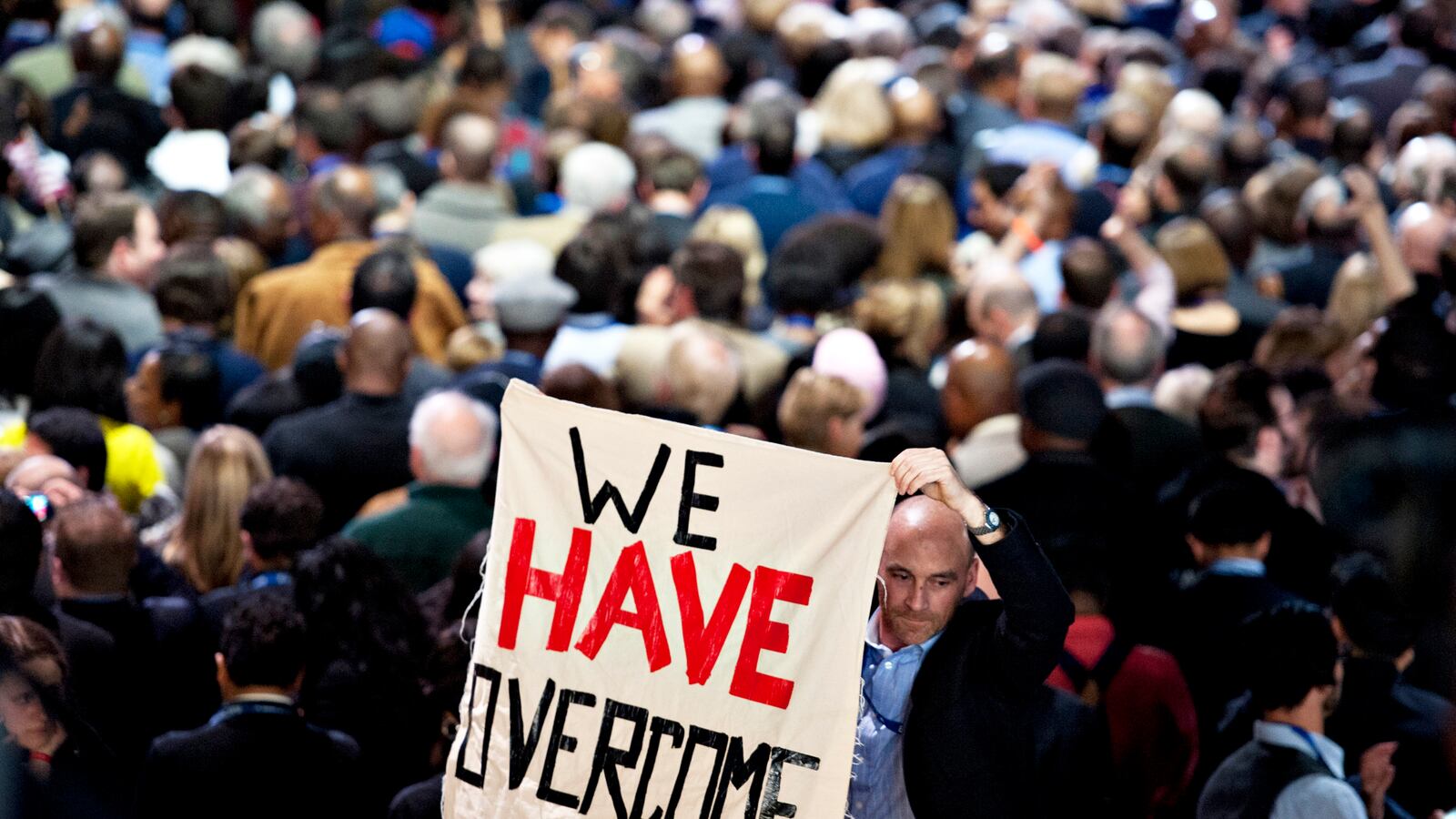This campaign, like every campaign, pundits offered historical analogies. 2012 was 2004 or 1992 or 1948. But, in the end, it wasn’t any of those. It was 1936.
For roughly half a century after the Civil War, Republicans dominated American politics because they dominated the North. But by the 1920s, after almost four decades of Catholic and Jewish immigration from Southern and Eastern Europe, the North had changed. And instead of embracing that change, the GOP fought it, spearheading blatantly anti-Catholic measures like Prohibition and shutting down mass immigration in 1921 and 1924. Democrats capitalized, nominating a Catholic, Al Smith, in 1928. Smith lost, but in 1932 Franklin Roosevelt built on the coalition he had forged, and won the presidency by combining the white South—a traditional Democratic stronghold—with the new immigrants of the urban North. Then, to an unprecedented degree, he appointed Jews and Catholics to top administration jobs. In 1935 Time magazine noted the change by featuring two key Roosevelt advisers, the Catholic Thomas Corcoran and the Jewish Benjamin Cohen, on its cover.

But it was only in 1936, when FDR won despite a terrible economy and the venomous opposition of much of the Northern WASP elite from which he hailed, that Republicans began to acknowledge that America had changed—and left them behind. And that’s exactly what Republicans are realizing again Tuesday night. For the last four years, Republicans have argued publicly, as they did between 1932 and 1936, that their defeat was a fluke. They’ve said John McCain was a bad candidate who only lost because Americans were sick of George W. Bush. They’ve said the Tea Party heralded an anti-government shift that would sweep the GOP back into power. They’ve said America was still a center-right country.
But in slightly more hushed tones, conservatives have also said something else: that Americans are becoming dependent on government, that we’re becoming a nation of victims. It was through this racially loaded rhetoric—crystallized by Romney’s 47 percent comment to a group of super-rich old white donors in Palm Beach—that conservatives backhandedly acknowledged that the country was moving away from them.
Now that language is breaking out into the open. As Bill O’Reilly said on Election Night on Fox News: “The white establishment is now the minority. And the voters, many of them, feel that the economic system is stacked against them and they want stuff. You are going to see a tremendous Hispanic vote for President Obama. Overwhelming black vote for President Obama. And women will probably break President Obama’s way. People feel that they are entitled to things and which candidate, between the two, is going to give them things?”
To be sure, Obama didn’t win in a landslide Tuesday night as FDR did in 1936. But he won easily despite a terrible economy. And for the GOP, the harsh reality going forward is this. Every four years for the foreseeable future, Hispanics and millennials—two constituencies who seem almost as wedded to the Democratic Party as Catholics and Jews were in the 1930s—will become even larger shares of the electorate. And in 2016, when Republicans next contest the presidency against a de facto Democratic incumbent, the economy will likely be stronger than it is today. Until Republican presidential candidates challenge some of the orthodoxies that are alienating America’s rising demographic groups, Republican presidential candidates will probably lose.
Four years ago, it looked possible that Barack Obama’s election heralded a new era of Democratic dominance. Now it looks almost certain. In the early 20th century, the face of America changed, and only one party changed with it. In the early 21st century, that story has played itself out again. From the beginning, Obama has said he wants to be a transformational figure, a president who reshapes American politics for decades, another Reagan or FDR. He may just have achieved that Tuesday night.






